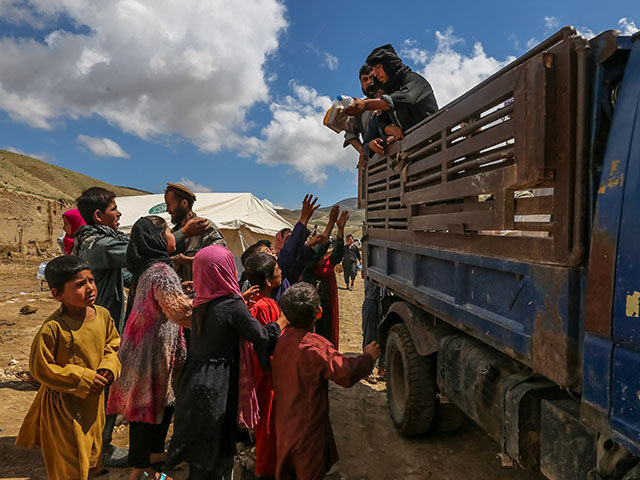The United Nations Office for the Coordination of Humanitarian Affairs (OCHA) found on Tuesday that three years after the Taliban takeover, 48 percent of Afghanistan’s population is living below the poverty line, 12.4 percent are suffering “food insecurity,” and 23.7 million rely on foreign aid.
OCHA said poverty has grown steadily worse under the Taliban regime, requiring more humanitarian aid for the Afghan people to fend off starvation and disease.
The agency warned that only about 25 percent of the $30 billion it requested from donor nations for Afghanistan relief has been funded.
A group of ten international aid organizations, including CARE International, the International Rescue Committee (IRC), and Save the Children International, published a statement on Tuesday warning that Afghanistan risks becoming a ‘forgotten crisis.”
“Millions of Afghans continue to struggle in one of the world’s largest and most complex humanitarian crises, three years after the change in power. Heavily dependent on humanitarian aid, Afghans are trapped in cycles of poverty, displacement, and despair,” the statement warned.
“Afghanistan is experiencing shock after shock – the ongoing economic crisis, the legacy of decades of conflict, the impacts of climate change, and the gender crisis have taken a devastating toll on the country,” the statement said, noting the same funding shortfall that OCHA mentioned.
The coalition of humanitarian aid groups tacitly admitted the political situation in Afghanistan makes it hard to round up foreign donors, and difficult to render assistance even when funding is provided. They also said humanitarian aid alone could not resolve the “ongoing crisis.”
“Afghanistan desperately needs long-term development assistance to address the root causes of poverty. Diplomatic engagement is crucial to creating an enabling environment in Afghanistan that will support upscaling international aid efforts to include development projects alongside emergency assistance,” the statement said.
“The current isolationist approach of most donor countries does not support durable solutions to the challenges faced by the people of Afghanistan, especially children, women, ethnic and other marginalized groups,” they complained.
It is not “isolationism” that causes foreign donors to hesitate when billions of dollars are demanded to feed, clothe, and medicate the captive citizens of a violent extremist regime that prefers to squander its wealth on weapons and tools of oppression.
The Taliban insists it has no intention of compromising in the slightest to improve its “engagement” with the outside world, not even on the most brutish of its policies. No one has introduced a plausible strategy for keeping the Taliban from skimming off huge amounts of aid money for its own malign purposes, and even if it doesn’t, every million dollars spent by foreigners on feeding the Taliban’s citizens frees up a million dollars for the “Islamic Emirate of Afghanistan” to buy bullets and bombs.

COMMENTS
Please let us know if you're having issues with commenting.